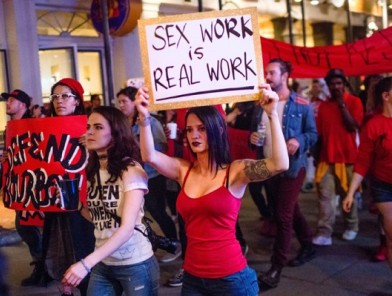South America, a continent of fiery passion, breathtaking landscapes, and profound social contrasts, offers a unique and complex backdrop for the world of high-end escorting and adult entertainment. To discuss this topic is to navigate a labyrinth of cultural attitudes, legal frameworks, economic realities, and human stories. This article aims to provide a realistic, grounded overview of what this industry looks like across several key South American countries, moving beyond fantasy to understand the facts on the ground.
Understanding the Legal Landscape: A Patchwork of Laws
The first and most critical point to understand is that there is no single "South American" law regarding sex work. The legal status varies dramatically from country to country, which directly shapes the experiences of both workers and clients.
-
Argentina: Sex work itself is not illegal, but activities around it, such as pimping, brothel-owning, and soliciting in public places, are criminalized. This creates a semi-legal grey area. Many high-end escorts operate independently online, which provides a layer of safety and discretion not afforded to street-based workers. The industry is relatively open in major cities like Buenos Aires.
-
Brazil: Similarly, sex work is legal, but associated activities like running a brothel or profiting from someone else's work (pimping) are illegal. Brazil has a powerful and organized sex workers' rights movement, which advocates for better working conditions and legal protections. In cities like Rio de Janeiro and São Paulo, the industry is vast and highly visible, ranging from high-end agencies catering to tourists and elites to a massive informal sector.
-
Colombia: The law is complex. Prostitution is tolerated and regulated in designated "tolerance zones" in many cities. However, outside these zones, it can be a legal grey area. High-end escorts in Medellín and Bogotá often operate through exclusive agencies or independently online, existing in a world separate from the street-based or zone-based work.
-
Chile: Here, the laws are stricter. Prostitution is legal, but any form of solicitation or organization around it is illegal. This means that while a person can technically sell sex, they cannot advertise it or work with others, making independent operation difficult and pushing the industry further underground.
This legal patchwork means that the experience of hiring an escort from the initial contact to the meeting itself varies significantly in terms of openness, safety protocols, and professionalism.
The Clientele: A Mix of Tourists and Locals
The clientele for high-end escort services in South America is diverse:
-
International Tourists: Men (and women) from North America and Europe are a significant part of the market, often drawn by the continent's reputation for beauty and the perceived lower cost of services compared to their home countries. "Sex tourism" is a well-established, though often controversial, industry in certain hotspots.
-
Local Elite: Wealthy businesspeople, politicians, and other affluent locals form a core clientele for the most exclusive agencies. Discretion is paramount in these circles.
-
Expatriates: Foreigners living and working in South American capitals often seek companionship through these services.
The Reality of the "High-End" Experience
The term "high-end" signifies a world apart from street-based sex work. It is characterized by:
-
Digital Marketplaces: The industry almost exclusively operates online through dedicated websites, private forums, and social media. Platforms like Instagram and Twitter are commonly used for advertising, with profiles often linking to professional websites.
-
Professionalism and Screening: Reputable independent escorts and agencies employ strict screening processes for clients. This can include requiring references from other providers, verifying employment, or screening through a dedicated agency. This is for their safety and to ensure a certain level of clientele.
-
Rates and Services: Fees are typically much higher than the local average income, placing these services firmly in the luxury domain. Meetings often occur in upscale hotels (often chosen by the client or the escort for safety) or private apartments. The service is framed around "companionship" and time, rather than specific acts.
-
Safety Protocols: High-end workers invest heavily in their safety. This includes using drivers, checking in with colleagues, screening clients thoroughly, and always meeting in safe, neutral locations.
Cultural Nuances and Regional Variations
-
Brazil: The Brazilian scene is incredibly diverse. In Rio, it's intertwined with the luxury beach culture and the famous "termas" (high-end sauna clubs that are de facto brothels) like Centaurus and 4x4. In São Paulo, the financial capital, the scene is more corporate and discreet. The influence of Brazilian culture open, physical, and celebratory of beauty is palpable.
-
Argentina: Buenos Aires has a more European, subtle vibe. The industry is less flashy and more integrated into a model/escort scene. Many workers are also students or have other professions, reflecting Argentina's economic challenges.
-
Colombia: Cities like Medellín have gained a specific reputation, partly fueled by its history and popular media. The "Paisa" culture is known for its warmth and beauty. However, this reputation has also led to significant issues, including exploitation and safety concerns for both workers and tourists. It's a city of extreme contrasts in this regard.
The Human Element: Agency, Exploitation, and Economics
It is impossible to discuss this topic without acknowledging the profound social and economic forces at play.
-
Economic Driver: For many, sex work is a rational economic choice in a continent marked by stark inequality, inflation, and limited opportunities. It can be a means to achieve financial independence, support a family, or pay for an education. The dollar or euro held by a tourist goes much further in local currency, creating a powerful economic incentive.
-
Agency vs. Coercion: The industry exists on a spectrum. At one end are educated, independent women who exercise full control over their work, viewing it as a professional service. At the other end are victims of trafficking and coercion, often from vulnerable backgrounds or neighboring countries with even weaker economies. The high-end, digital-focused sector generally represents more agency, but the lines can sometimes blur, and the risk of exploitation is always present.
-
Stigma and Danger: Despite the relative openness in some countries, stigma is a constant reality. Sex workers often face judgment from society and even their own families. They also face significant dangers, including violence from clients, extortion from corrupt police, and a lack of legal recourse when crimes are committed against them.
Beyond the Fantasy
The world of high-end escorting in South America is not a monolithic fantasyland. It is a complex, multifaceted industry deeply woven into the social and economic fabric of the continent. It is a story of:
-
Contrast: Between immense wealth and grinding poverty.
-
Agency: For some, it is a chosen profession managed with business acumen.
-
Vulnerability: For others, it is a path fraught with risk and exploitation.
-
Culture: Shaped by Latin American attitudes towards sexuality, relationships, and commerce.
For anyone seeking to understand or engage with this world, the most important takeaways are respect, awareness, and caution. Recognizing the humanity of the workers, understanding the legal and social context of the specific country, and prioritizing safety and discretion above all else are not just advisable they are essential. The reality is far more intricate and human than any fantasy or sensationalized story could ever convey.













